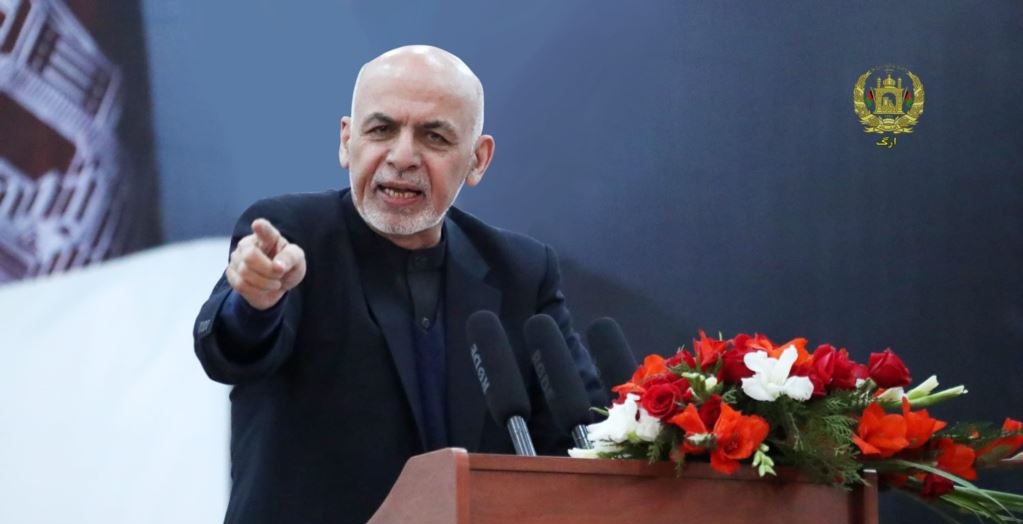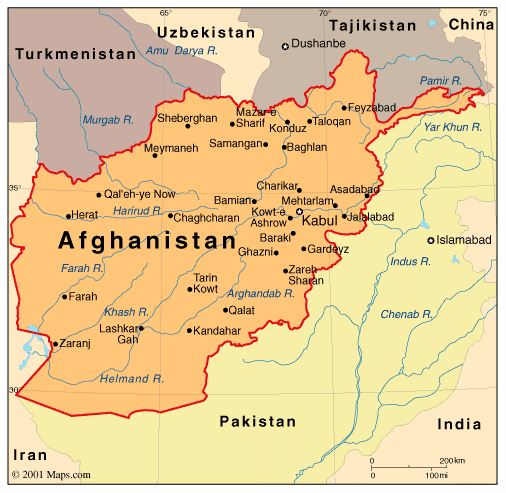What about the Taliban?
March 8, 2018 | Expert Insights

Afghanistan President Ashraf Ghani has repeated his overtures to the Taliban urging them to come to the negotiating table to end violence in the region. However, there are those who remain skeptical on whether Ghani’s move would even work.
Background
The Taliban are a militant group who have resiliently held on to rural terrain and managed to conduct repeated high-profile attacks in Kabul and other cities. Its leaders have created an organizational structure in which the top echelons provide strategic guidance and oversight, while military and political officials in the field make operational and tactical decisions. The Taliban has also managed to retain some organizational cohesion, despite the loss of two leaders in the past few years.
Yet the Taliban has faced serious setbacks. After temporarily seizing the northern city of Kunduz in September 2015, the group lost control of it within days as the U.S. and Afghan forces rallied to take it back. In 2016, the Taliban put pressure on several provincial capitals, at times simultaneously, but could not overrun any of them. In 2017 it failed to mount a sustained threat against any provincial capital.
Landlocked and mountainous, Afghanistan is one of the most unstable nations in the world. Much of its economy and its infrastructure are in ruins and the nation relies heavily on foreign aid. The region is home to multiple terror groups such as ISIS, Taliban, al Qaeda and Daesh.
This chronic instability has forced many citizens to become refugees. The region is plagued by multiple terror attacks. In 2016, 4,561 people were killed by terrorists in Afghanistan. There were 1,340 terrorist attacks that year alone.

Analysis
In the first two months of 2018, the terror attacks in Afghanistan by the Taliban increased exponentially. On 29 January 2018, explosions and gunfire erupted near the main military academy in Kabul, as officials and witnesses feared insurgents had entered another heavily guarded compound. In the same month, an ambulance packed with explosives killed at least 100 people. The Taliban took responsibility for the attacks.
The group has stated that they are willing to engage in peace talks but only directly with US authorities. In February 2018, in a rare showing of diplomacy, Afghan President Ashraf Ghani made the unprecedented offer to officially recognize the Taliban as a legitimate political group in the region. He has asked the group to come to the negotiating table without any “precondition”.
"Taliban leaders and all members, the decision is in your hands. Accept peace, come to the negotiating table," said Ghani. "We are making this offer without preconditions in order to lead to a peace agreement." He was speaking at a conference attended by officials from around 25 countries involved in the ‘Kabul Process.’
“The Taliban are expected to give inputs to the peace-making process, the goal of which is to draw the Taliban, as an organization, to peace talks,” he said, adding that he would not “pre-judge” any group seeking peace. However, he warned that the group will have to accept the present Afghan government and follow the rule of the law. Despite overtures from the Afghan government, the Taliban have maintained a stoic silence. The group has stated that they would talk to the US government.
Alice Wells, a U.S. Principal Deputy Assistant Secretary of State, in charge of South and Central Asian affairs, told reporters in Washington on March 5 that Ghani is not demanding "surrender" by the Taliban, as a Taliban spokesman has said. "I heard him offering a dignified process," she said. "This is not a surrender that's being offered to the Taliban, but a dignified process for reaching a political framework."
Ghani's offer was "quite forward-leaning, and frankly I think probably caught the Taliban by surprise," Wells said. "This was quite a courageous offer. We certainly encourage the Taliban to take this offer seriously. It does put the onus on the Taliban to respond," she said.
Wells also spoke about Pakistan adding, “Pakistan has a very important role to play in a peace process. We believe that Pakistan can certainly help to facilitate talks and to take actions that will put pressure on, and encourage the Taliban to move forward towards a politically negotiated settlement. They have concerns over border management; over the [Pakistani Taliban's] presence in ungoverned space in Afghanistan; refugee concerns.”
Afghanis however remain skeptical of Ghani’s offer and have expressed concern over whether these peace overtures would even work. In addition, there are concerns that even with legitimacy the Taliban group would continue its violent attacks on the region. Ghani for his part has repeated his offer to the Taliban noting, “We call on the Taliban to engage in negotiations in the interest of Islam and Afghanistan, so we can resolve our problems and differences without shedding blood and further destruction.”
Assessment
Our assessment is that even though Ghani’s proposal is unprecedented, the Taliban’s silence should to be a pressing concern for the Afghan government. If the Taliban become a legitimate political group, then that would also become a security concern for countries like India.








Comments